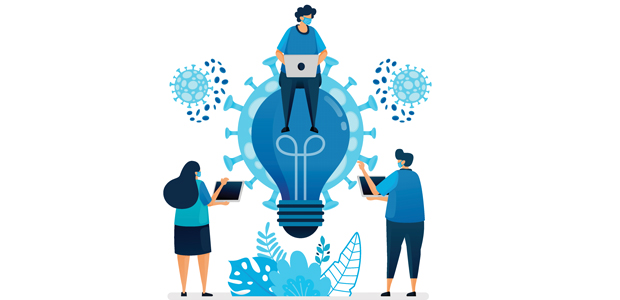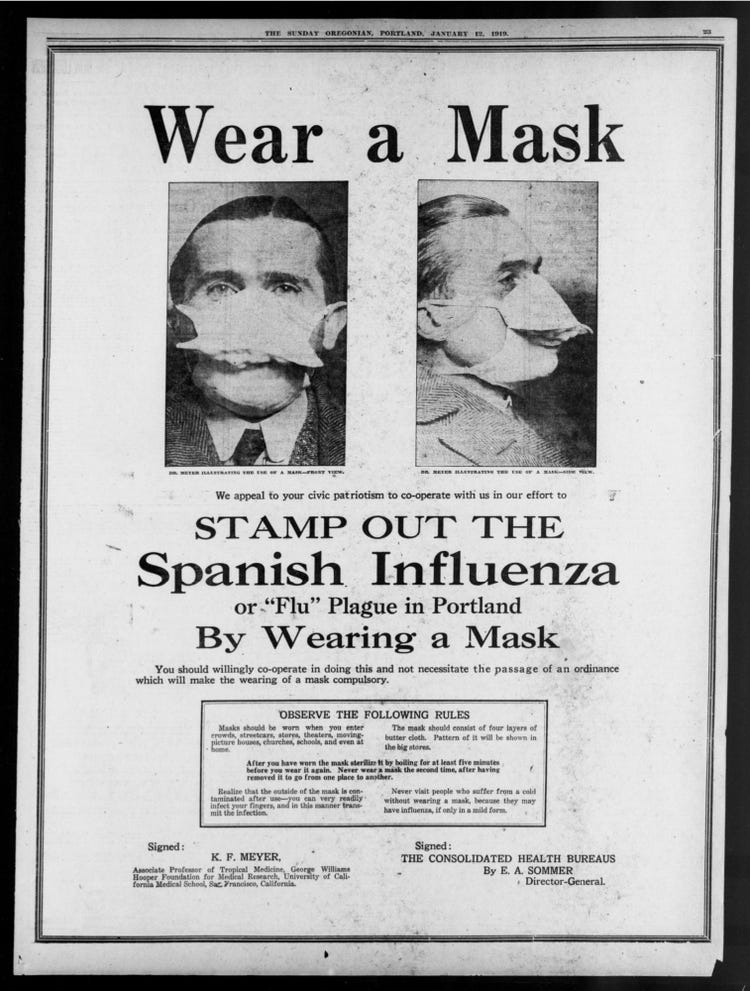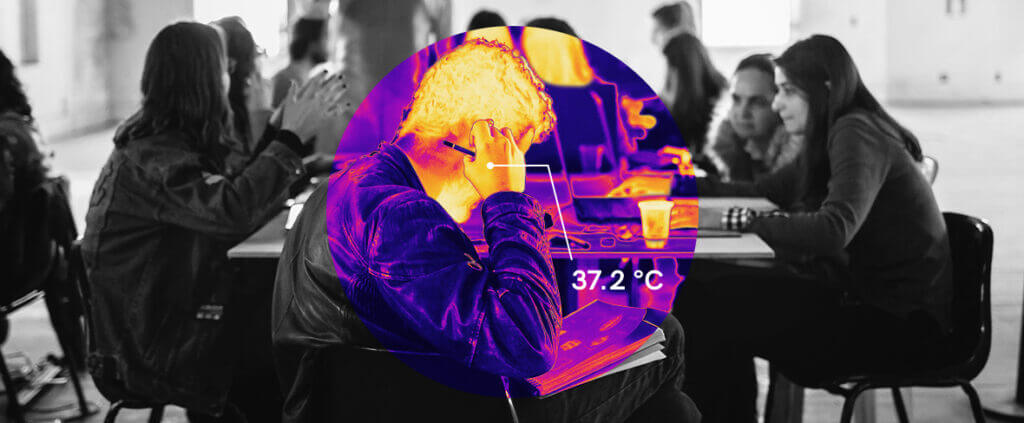
The Scaleups Fighting COVID
We are in a new world war, with a common enemy. However, the frontline is not on the beaches of Normandy, the plains of Russia or the Pacific islands but in the homes, offices, hospitals and care homes of every country in the world.
The last global pandemic at this scale was the 1918 Spanish Flu, which originated in the USA but was spread across the globe by post-War disruption and deprivation and, particularly, men returning from the trenches of WW1.

According to the CDC It is estimated that about 500 million people, or one-third of the world’s population at the time, became infected with this virus with tens of millions dying very rapidly from the disease.
Back then, the world had limited knowledge of how to treat Spanish Flu or quickly develop vaccines as virology was in its infancy. Fast-forward 100 years, we now have an entire medtech industry devoted to finding solutions to the most complex epidemiological problems of our era.
One thing is for sure, our war against COVID will accelerate how we develop and deploy vaccines and protect against future outbreaks and other pandemics, as a major effort to mitigate socio-economic risk.
But as Jonathan Simnett, innovation expert and director at specialist technology mergers and acquisitions (M&A) advisory firm, Hampleton Partners points out: “If necessity is the mother of invention then warfare is the father of innovation. Think about how military hardware improved during World War 2. In 1935 the RAF’s front line fighters were Hawker Fury biplanes, by 1940 all-metal monocoque Supermarine Spitfires and by jet-powered 1945 Gloster Meteor were taking to the sky flying jets with all the innovation in materials, airframes, engines and, ultimately, combat strategy, that entails.”

As we fight COVID globally, the same rapid acceleration is now happening with the advancement of our medical expertise and infrastructure.
Behind the scenes, startups and scaleups are working with and enabling scientists around the world to decode the COVID menace. They’re utilising AI, machine learning and big data to crack how the virus works and protect us, before it mutates into another threat.
The Road To A Vaccine
Simnett emphasises: “Faced with the global death toll and massive economic damage wrought by COVID the rate at which vaccines, in particular, have been produced is truly remarkable. To have vaccines available at scale a little over a year since the first cases of the virus were reported is without precedent.”
Indeed it is remarkable. According to the WHO, vaccines traditionally take between 10-12 years to launch onto the market. If the initial rollout of the vaccine in China and elsewhere goes well, it will mean the time from a new virus outbreak to a vaccine has reduced by more than 90%.
The Innovators
But a vaccine is only part of the answer and its effects may be less than comprehensive in terms of its effectiveness per se and the proportion of the population that can be, or wants to be, vaccinated .
Globally, governments, NGOs and businesses are looking to find multiple solutions that, applied together, will help the world get back to `normal`.
These sectors are helping foster global collaboration between innovators and researchers, getting our industries back on their feet and, in particular, helping medical professionals manage COVID cases within hospitals and controlling infection in the general population.
Hospital screening for COVID cases
One of the biggest challenges for medical professionals is how do you know if someone has COVID or some other infection as they enter a treatment facility so an appropriate treatment regime can be quickly applied? The answer is highly accurate scanning.
Quibim is using advanced AI to screen X-Ray and CT radiological lithographs for identifying COVID-19 within patients. Its technology, QUIBIM Precision, has been deployed across Europe to help medical professionals distinguish between COVID and non-COVID patients within 10 seconds of the scan taking place.
Protecting the Public at Work, Rest and Play
Thus far, the only way to mass screen people at work, rest and play has been the hand-held Infrared Temperature Gun, which is expensive, slow, and labour-intensive to use and often inaccurate. Consequently, this method of testing is not feasible at scale.
Sentispec is a health tech startup that has created AI-enabled fever screening services for enterprises and governments. The company was founded in March 2020 and launched its ViraHawk product in August. The company uses AI-enabled thermal cameras to detect whether individuals show the key temperature variations that directly correlate with a positive COVID-19 test.
Their ViraHawk system can spot potential COVID cases in crowds of people and, through rapid isolation of those identified as COVID-positive can prevent the spread of viruses within industries where large numbers of people work in close proximity from transportation, logistics, all manufacturing, retail and even in hospitals.

“COVID-19 has been the biggest shock to our economies in living memory. We created ViraHawk to help governments and companies identify individual cases and help keep the R number down.
Moving beyond COVID, our technologies can help companies identify individuals with even more common viruses like Influenza. Which costs better-off countries more than £30bn in sick days every year,” says Sentispec’s founder, Andreas Claudi.
Unlocking COVID Vaccines, Medications and Treatments
COVID-19 isn’t the first coronavirus to emerge. For those who remember SARS and MERS; they were also coronaviruses. So, naturally, researchers have done considerable research into these conditions. Wouldn’t it be handy if all this research was digitally read and indexed to be conveniently accessed for research purposes.
Luckily for researchers at the beginning of COVID-19, this is what startup Causaly had done. Every research paper conducted pre-COVID-19, as well as every current paper, has been uploaded to the Causaly platform. This allows researchers to find up-to-date research, the latest findings, potential treatments and much more.
Back in March, Causaly provided COVID-19 datasets to the Bill and Melinda Gates-funded Global Health Drug Discovery Institute, which created a knowledge-sharing platform to help researchers develop vaccines and find drugs to reduce the mortality rate.
Test Run For The Next Pandemic
In 2020, the WHO recorded outbreaks of Ebola, Bubonic Plague, Dengue Fever, MERS and Yellow Fever. Though none of these outbreaks spread far from their initial containment, it is still a warning flag that potential pandemics are a constant danger.
COVID-19 may turn into a new version of flu that comes and goes, like Spanish Flu did - or it may not. What is certain is that in the wake of future global viruses, we now have a playbook to work from and improve upon. Companies like Quibim, Sentispec, Causaly and future innovators will be on hand to help reduce the spread, increase survival rates and help find vaccines, reducing the cost for both government, business and citizens alike of any future pandemic.

